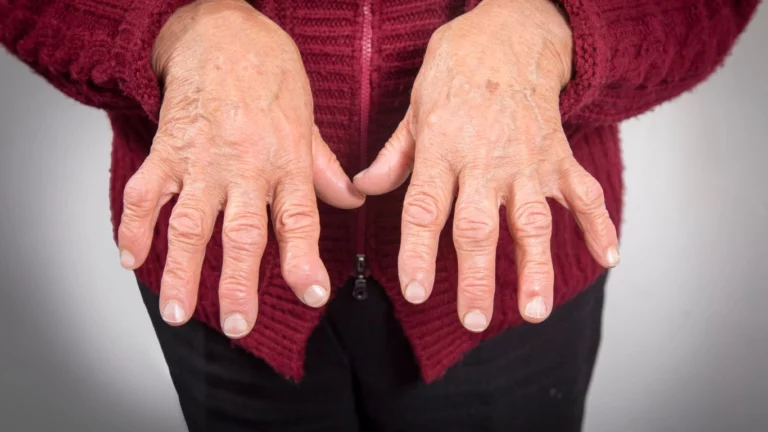Rheumatoid Arthritis and Stress Management Techniques – How to Find Relief
Rheumatoid arthritis (RA) and stress have a complicated relationship. Stress can exacerbate symptoms of RA, making it crucial to manage stress effectively. Here’s a comprehensive guide on how to manage stress while living with rheumatoid arthritis.
If you’re dealing with rheumatoid arthritis (RA), you probably know that stress can make everything feel a whole lot worse. It’s a tricky situation because stress doesn’t just affect your mood—it can also directly impact the way your body handles inflammation and pain. But don’t worry, there are some stress management techniques that can actually help you manage both the stress and the symptoms of RA.

So, let’s dive into how stress affects RA and some practical ways to manage it.
Why Stress Makes Rheumatoid Arthritis Worse
Before we get into the techniques, let’s quickly talk about why stress and RA don’t mix well. When you’re stressed, your body goes into “fight or flight” mode, which releases a bunch of hormones like cortisol. While this can be helpful in short bursts (like if you’re in an emergency), it’s not great for chronic conditions like RA. Constant stress can lead to an increase in inflammation, which is exactly what you don’t want when you’re managing an autoimmune disease like RA.
Stress also affects how you perceive pain. When you’re stressed, your body is more sensitive to pain, and if you’re dealing with joint pain, this can feel like it’s ramped up even more. So, finding ways to keep stress in check isn’t just good for your mental health—it’s also great for your physical health.

Effective Stress Management Techniques for RA Relief
Let’s talk about some techniques that can help you reduce stress and make life with RA a little easier to handle.
1. Mindfulness and Meditation: Calm Your Mind and Body
Mindfulness and meditation have gained a lot of popularity in recent years, and for a good reason! They help you focus on the present moment and avoid spiraling into stress about the future or the past.
For RA, regular meditation helps reduce stress and can even lower inflammation. By focusing on your breath, you can tap into your body’s relaxation response. It’s a simple technique but super effective. You don’t need hours of practice—just 10-15 minutes a day can make a difference.
Pro Tip: Use a guided meditation app or a YouTube video if you’re not sure where to start. I’ve found some that focus on relaxation and pain relief, which is a win-win.
2. Exercise: Move That Body
I know it sounds counterintuitive, especially if you’re dealing with joint pain, but gentle exercise can actually help with RA. Exercise releases endorphins (those feel-good hormones), which are natural stress-busters. It also helps improve joint mobility and reduces stiffness.
The key here is to choose low-impact activities that don’t stress your joints. Think swimming, walking, or yoga. Stretching and gentle movements can help improve your range of motion without causing a flare-up.
3. Deep Breathing and Relaxation Techniques
Sometimes, when stress is overwhelming, a deep breath is exactly what you need. Deep breathing exercises trigger your parasympathetic nervous system, which helps you calm down. Even just a few slow, deep breaths can lower your heart rate and help manage stress in the moment.
Try the 4-7-8 method: Breathe in for 4 seconds, hold for 7 seconds, and exhale slowly for 8 seconds. This simple technique can help you reset in stressful situations.
4. Therapy and Support Groups
Living with RA can be isolating, and stress levels tend to go up when you feel like you’re in this alone. Therapy or support groups can provide emotional support and teach you coping strategies. A therapist trained in cognitive behavioral therapy (CBT) can help you reframe negative thoughts that may be making your stress worse.
Support groups are a great place to meet others who are going through similar experiences. Sometimes, just knowing that others get it can reduce stress and help you feel less anxious about managing your RA.
5. Healthy Diet and Supplements
While stress management is crucial, what you eat can play a role too. A balanced diet filled with anti-inflammatory foods like leafy greens, berries, and fish can help reduce inflammation in your body. On top of that, staying hydrated and reducing caffeine can prevent stress from escalating.
Some people find that certain supplements, like turmeric (which has anti-inflammatory properties), can also help with managing both stress and RA symptoms. But before you dive into any new supplements, it’s a good idea to chat with your healthcare provider to make sure they’re a good fit for you.
How to Stay Consistent with Stress Management
I get it—it’s hard to stay consistent with stress management techniques. But here’s the thing: the more you practice these techniques, the easier it becomes to manage stress in your daily life. Setting small, achievable goals is a good place to start. You don’t need to master everything overnight!
Start with one or two techniques that resonate with you. For example, try 10 minutes of meditation in the morning and a 15-minute walk in the evening. Over time, you’ll start noticing the benefits in your physical and emotional well-being.

Conclusion: Stress Management is Key for RA Relief
Stress and rheumatoid arthritis don’t make a good team, but with the right tools, you can manage both. Mindfulness, exercise, deep breathing, therapy, and a healthy diet are all powerful tools that can help you find relief. By incorporating these techniques into your daily routine, you can reduce stress and improve your overall quality of life with RA.
Remember: it’s about consistency and finding what works for you. You’ve got this!
Appendices
References
- American College of Rheumatology. (2024). Managing Stress with Rheumatoid Arthritis. Retrieved from www.rheumatology.org
- National Institute of Arthritis and Musculoskeletal and Skin Diseases (NIAMS). (2023). Rheumatoid Arthritis: Symptoms and Treatment. Retrieved from www.niams.nih.gov
- Smith, L., & Jackson, R. (2022). Stress and Chronic Inflammatory Conditions: A Comprehensive Review. Journal of Clinical Rheumatology, 28(3), 145-152.
FAQs
- How does stress affect rheumatoid arthritis? Stress triggers inflammation in the body, which can worsen RA symptoms. It can also make pain feel more intense, so stress management is key in controlling flare-ups.
- Can exercise make rheumatoid arthritis worse? Gentle, low-impact exercises like walking or swimming can help reduce stiffness and pain. Overdoing it, though, can cause strain, so it’s essential to listen to your body and adjust accordingly.
- Is meditation really effective for stress relief with RA? Yes! Meditation can help reduce stress and pain by calming the mind and body. It lowers inflammation and helps you stay relaxed, even in stressful situations.
- What foods should I avoid if I have rheumatoid arthritis? Processed foods, sugar, and red meats can increase inflammation. Focus on a diet rich in fruits, vegetables, lean proteins, and omega-3 fatty acids for better management of RA.
- Are there any supplements that can help with RA and stress? Turmeric, omega-3s, and vitamin D are commonly used to help reduce inflammation. Always check with your doctor before starting any new supplement.
Disclaimer
This article is for informational purposes only. Always consult with a healthcare provider for personalized advice on managing rheumatoid arthritis and stress.













